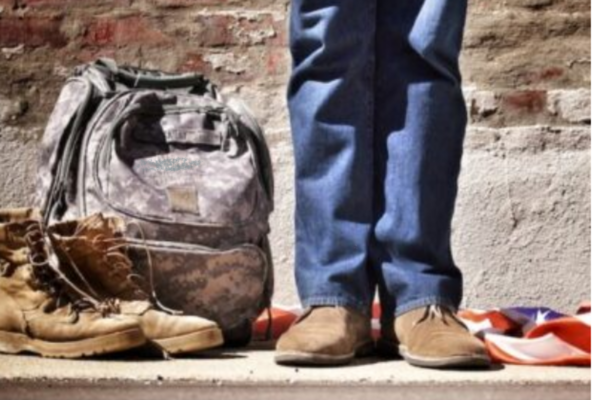In today’s society, American veterans face numerous challenges, despite their incredible sacrifices and service to the nation. From physical and mental health issues to difficulties in accessing quality education and employment opportunities, veterans deserve better.
Our duty as a grateful nation is to ensure that those who have served are provided with comprehensive and improved benefits to support their well-being and transition back into civilian life.
Strengthening Educational Opportunities
One significant way we can enhance veterans’ benefits is by expanding access to quality education. By implementing programs that offer vocational training, apprenticeships, and affordable higher education options, we can equip veterans with the skills they need to pursue rewarding careers. Scholarships, grants, and tuition assistance programs specifically tailored for veterans can help alleviate the financial burden associated with pursuing education.
Empowering Employment Initiatives
Establishing stronger employment initiatives is crucial to better serve veterans in their post-military careers. Implementing tax incentives for businesses that hire veterans, creating job placement services within the Department of Veterans Affairs (VA), and fostering partnerships with private industries can all contribute to greater employment opportunities for our veterans. By providing tailored career counseling and resources, we can help veterans translate their military skills into the civilian job market successfully.
Expanding VA Healthcare Services
Expanding VA healthcare through legislation such as the PACT Act is a vital aspect of improving veterans’ benefits. By investing in infrastructure, increasing funding, and expanding the availability of healthcare facilities, we can ensure timely and quality medical services for our veterans. Strengthening mental health support and providing specialized care for conditions such as PTSD, traumatic brain injuries, and substance abuse are crucial steps in addressing the unique healthcare needs of veterans.
Enhancing Transition and Reintegration Programs
Smooth transition and reintegration into civilian life are critical aspects of supporting veterans. By improving programs like the Transition Assistance Program (TAP) and collaborating with community organizations, we can offer comprehensive support services, including job placement assistance, mental health counseling, financial guidance, and housing resources. Investing in mentorship programs that pair veterans with successful civilian professionals can provide invaluable guidance during this transition phase.
Strengthening Disability Benefits
To honor veterans’ sacrifices, it is imperative to strengthen disability benefits. Expediting the claims process, enhancing accessibility to benefits, and ensuring fair and comprehensive evaluations are essential steps. Adequate compensation for service-connected disabilities, including physical injuries and mental health conditions, must be prioritized to provide veterans with the financial stability and support they deserve.
Fostering Community Support and Recognition
Building a stronger community support system is vital for veterans’ well-being. Promoting public awareness campaigns, organizing community events to honor veterans, and encouraging employers, schools, and organizations to create veteran-friendly environments can all contribute to a more inclusive society. By fostering a culture of appreciation and recognition, we can empower veterans and ensure they feel valued for their sacrifices.
Improving veterans’ benefits is an ongoing mission that demands our utmost attention and dedication. Our collective responsibility is to ensure that veterans receive the care, respect, and opportunities they deserve. In honoring our veterans, we strengthen the very fabric of our nation, built on principles of sacrifice, courage, and resilience. Let us unite in our efforts to improve veterans’ benefits and create a society that truly honors their service. By implementing the suggestions outlined above, we can make a tangible difference in the lives of our veterans.
A smooth transition and reintegration process is vital for veterans’ successful return to civilian life. By improving programs such as the Transition Assistance Program (TAP) and providing comprehensive support services, we can help veterans navigate the challenges they face after their military service. Mentorship programs, community partnerships, and access to resources like counseling, financial guidance, and housing assistance can significantly impact their transition journey.
Our veterans deserve better. Our moral obligation is to improve their benefits and create a society that truly honors their sacrifices. By prioritizing education, employment, healthcare, transition support, disability benefits, and community engagement, we can make a lasting impact on the lives of our veterans. Let us stand together, united in our commitment to bettering the lives of those who have served our nation. Only then can we truly repay the debt of gratitude we owe to these brave men and women.
